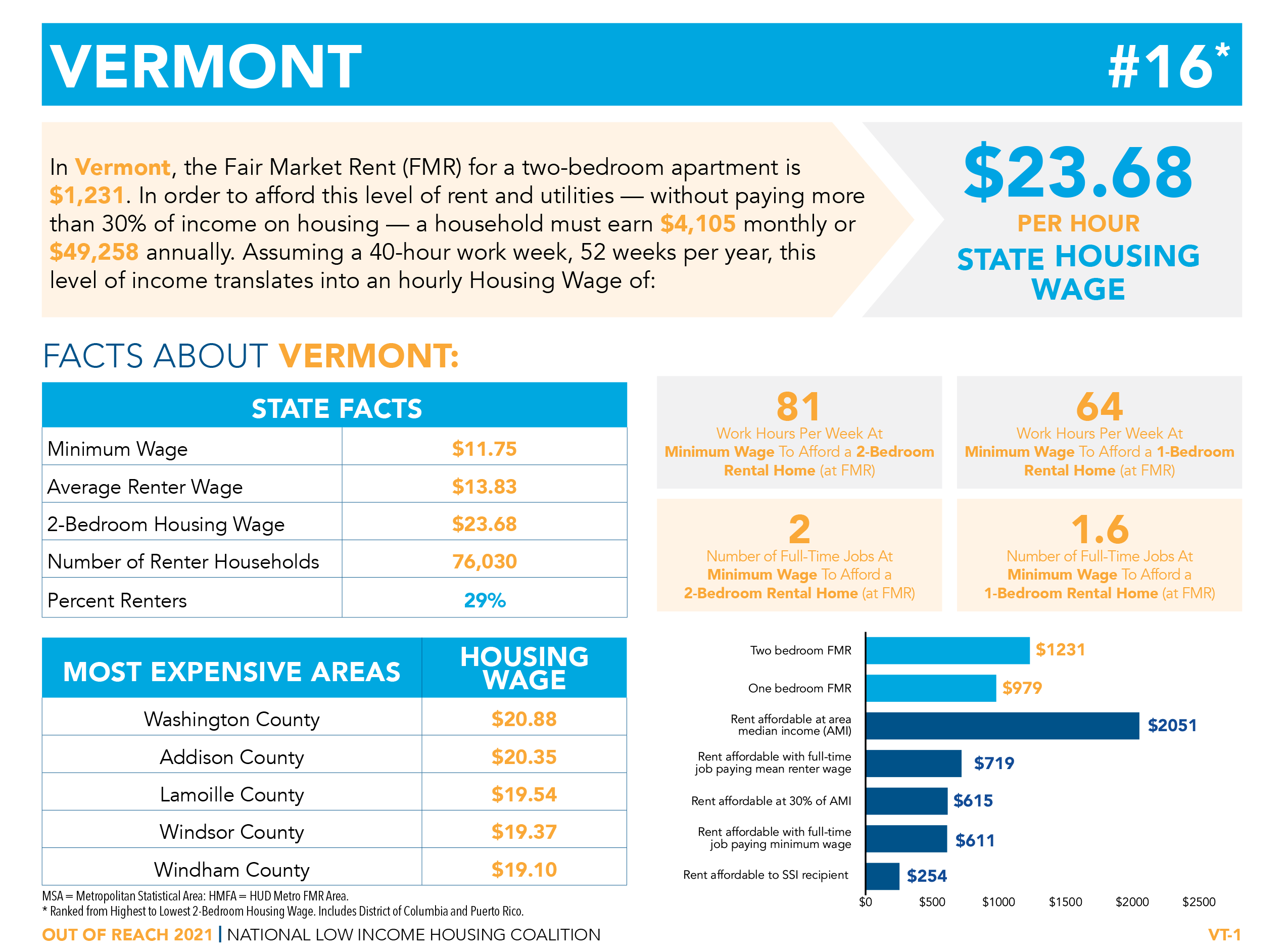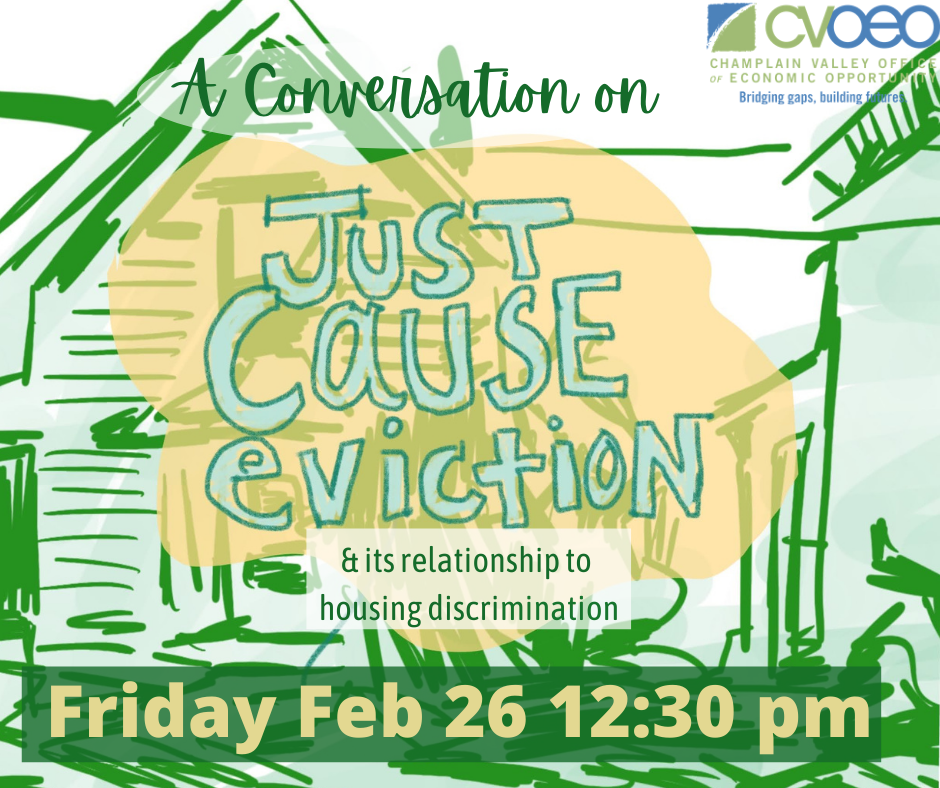Continue reading Winooski Mutual Aid Volunteers Advocate for Translated Tenant Rights Resources
Category Archives: housing inequality
System-busting through activism
NLIHC’s Out of Reach Report tells us what we already know: Vermont has a growing affordability problem – Here’s what we can do about it.
The recent release of the National Low Income Housing Coalition’s Out of Reach report shows that Vermont has the sixth largest shortfall between the average renter wage and the two-bedroom housing wage. In the Burlington/ South Burlington region, where the 2-bedroom housing wage jumps from the state’s average of $23.68 to $31.31, the housing wage gap is particularly acute. This means that full-time employees living in Burlington and South Burlington have to make $31.31per hour in order not to spend more than 30% of their income on rent. Meanwhile, the average hourly wage for Vermont renters is $13.83.
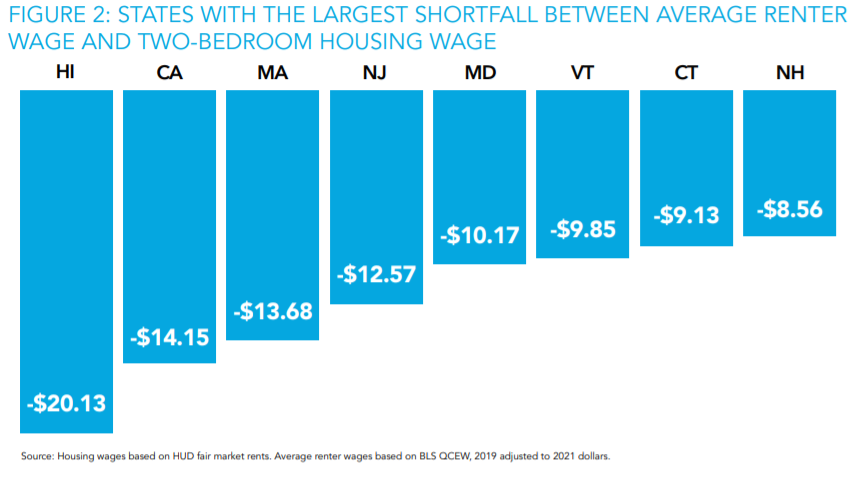
“We’ve been in the midst of a chronic affordable housing crisis for many, many years,” Kerrie Lohr of Lamoille Housing Partnership, asserted to VTDigger earlier this week, “This report pretty much shows what we already know to be true, is that housing is out of reach for many of Vermont’s renters.” What housing advocates have been seeking to address over the course of Vermont’s long housing affordability history crisis has become especially acute during this past year. While Vermont’s housing sales spiked 38% this past year, many of these new residents purchased with cash-on-hand, often significantly over the asking price, with sales of million dollar homes almost tripling.
These numbers are particularly concerning when we turn an eye to Vermont’s pattern of racial inequity. This year saw rates of COVID doubling in communities of color, highlighting the disparities in health and economic opportunities for People of Color in Vermont. Nationally, the home ownership rate of White households is 70% to the 41% of Back homeowners, a gap caused and reinforced by a pervasive history of racist housing policies, inequal lending, and lack of meaningful policy change to address this systemic problem. Vermont’s homeownership gap is much larger with only 21% of Black households owning their home compared to 72% of white households. Local student activist (and current Fair Housing Project intern) Minelle Sarfo-Adu spoke to VPR about experiencing this stark disparity in her South Burlington community, “I think I only have two African American friends in the whole — like in all Vermont, that actually own homes,” she said. “Other than that, every other one of my friends actually rents, unless they’re white. All my white friends actually own their homes.”
The severe affordability crisis in Vermont creates an environment where landlords can be more discriminative in who they rent to. For renters who belong to the Fair Housing protected classes and face the greatest barriers to housing access in our state, this means longer and more desperate housing searches. While housing advocates are certain that most discrimination goes unreported, testing performed by the Housing Discrimination Law Project of Vermont Legal Aid indicates that housing providers generally disfavor African American renters, renters of foreign origin, renters with children and renters with disabilities. Reports from the CVOEO Vermont Tenants hotline and housing community forums are riddled with stories of people being turned away from housing because of a housing voucher or for having children (both violations of the Fair Housing Act in Vermont), and of desperate housing decisions such as signing leases before viewing the property or even offering to pay more than the listed monthly rent.
So what do we do about it?
“Treat the housing emergency like an emergency,” retorts the collective voice of Anne N. Sosin, Mairead O’Reilly, and Maryellen Griffin in their recent VTDigger commentary, “Housing is a Public Health Crisis in Vermont.” Sosin is a policy fellow at the Nelson A. Rockefeller Center at Dartmouth College; O’Reilly is a medical legal partnership attorney at Vermont Legal Aid; and Griffin is a housing attorney at Vermont Legal Aid. Housing activists, policy makers, and the broader population of Vermont need to act now to address this growing problem, they wrote as they shared the major lessons housing advocates have gleaned from this past year of COVID response. Their voice has urgency, as some key opportunities to enhance renter protections have already passed. These key missed advocacy moments include the veto of the Rental Housing Safety Bill and a failure to delay the ending of the State of Emergency – which had expanded shelter space for houseless folks through federal CARES funding – until more rental housing was made available. Some economists and sustainable communities experts caution this trend is only at its early fruition as climate change pushes folks from more geographically vulnerable locations.
Much of what Sosin, O’Reilly, and Griffin called for is still possible. “Mobilize a statewide response,” they stated, noting that these solutions will be unique to the region and therefore require regional solutions. Our Fair Housing Friday panelists this spring noted that creative solutions require broad civic engagement, especially from those most impacted by the growing inequity of available resources. Housing Committees are a critical tool to mobilizing regional solutions to a statewide problem and can jumpstart conversations at the community level. The common thread running through all these solutions is that they must center the needs of the communities consistently facing the highest barriers to housing.
Fair Housing Month Recap – and the Work Ahead
Fair Housing Friday: Just Cause Eviction & Why It is Important for Housing Equity Feb 26
Join us for a lunchtime conversation on Just Cause Eviction on Friday, Feb. 26 – 12:30-1:30pm.
Panelists include Brian Pine, speaking on behalf of the Just Cause Coalition, Michael Monte from Champlain Housing Trust, Bor Yang from the Vermont Human Rights Commission, and Christie Delphia from the Burlington Tenants Union.
This conversation will highlight the ways language similar to Just Cause is already being used by nonprofit housers across Vermont, why evictions should be avoided & when they are actually necessary, and how Just Cause can combat housing discrimination. This lunchtime conversation will be recorded and have time at the end for a Q & A session.
Register using this link: https://us02web.zoom.us/meeting/register/tZIvd-2hrDovG90HXUx0PDe1zXZYj6e7HHnI
And you can share our facebook event here:
http://https://www.facebook.com/events/451236372739293
Regarding the Just Cause Opposition’s recent disinformation campaign:
On Monday Morning of February 22nd, leaders from Rights & Democracy VT, Vermont Affordable Housing Coalition, The Black Perspective, Burlington City Council, Burlington Tenants Union, Burlington VT Democrats Vermont, state representative Kesha Ram -among others- came forward to address a recent disinformation campaign lead by the opposition to Just Cause. Leaders condemn the red lawn signs designed to scare tenants, spread baseless statements and co-op racial equity language.
And here is the Vermont Affordable Housing Coalitions response to this recent smear campaign: https://www.vtaffordablehousing.org/2021/02/19/the-vermont-affordable-housing-coalition-fully-supports-the-burlington-just-cause-charter-change-proposal/
The Enduring Legacy of Dr. Martin Luther King Jr
While Martin Luther King Day is relegated to one day each year, it is important to remember that the legacy of Dr. Martin Luther King Jr’s lives on, his advocacy and preaching never loosing relevance in our day-to-day. Throughout our Vermont communities, folks came together to reflect and celebrate the Dr. Martin Luther King Jr’s commitment to justice.
The Fair Housing Project’s partner, the Old North End Arts Center, celebrated Dr. Martin Luther King Jr’s legacy with their Better World Camp. The ONE Art Center invited kids to explore kindness through art projects, focusing on fun and the different ways the children can express themselves. They spent MLK Day by making art projects in a variety of media, practicing drama, storytelling, dancing, playing organized games, asking kids to think about What is service to others?

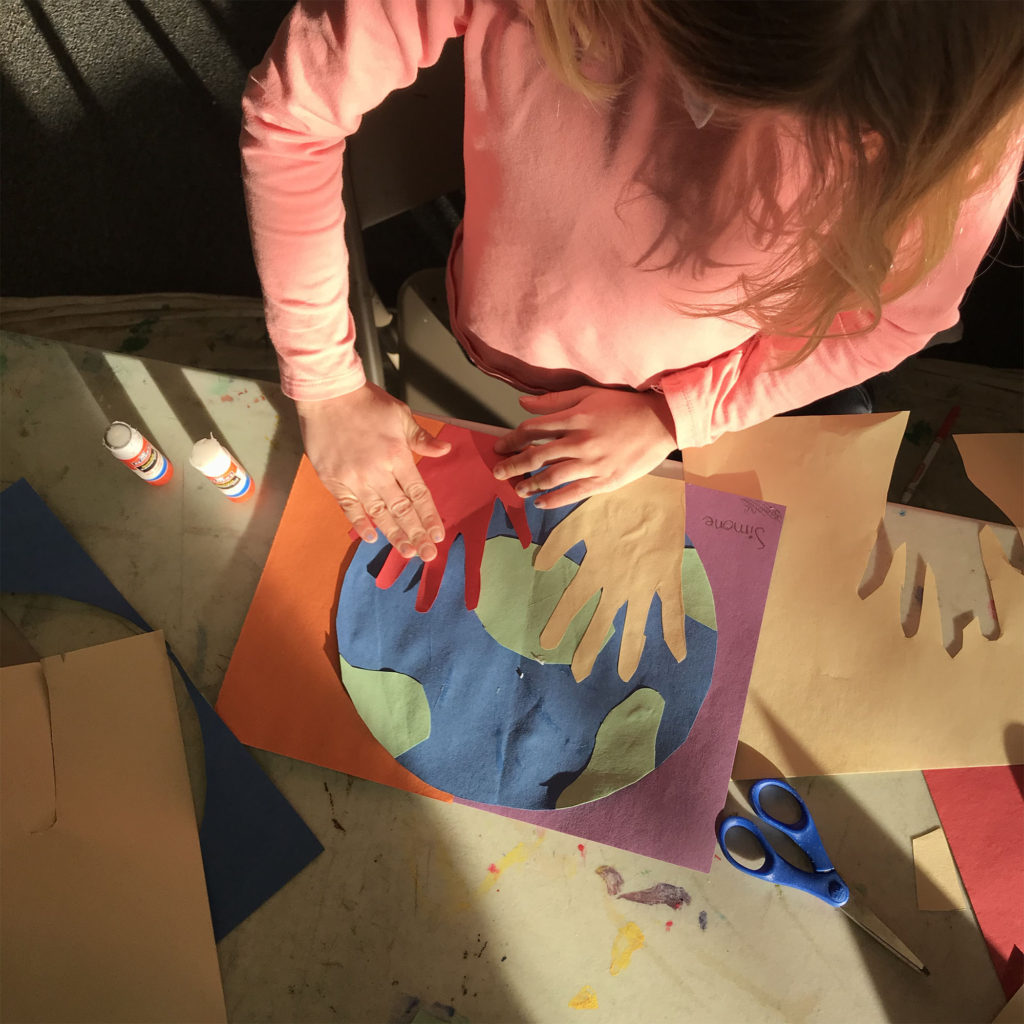
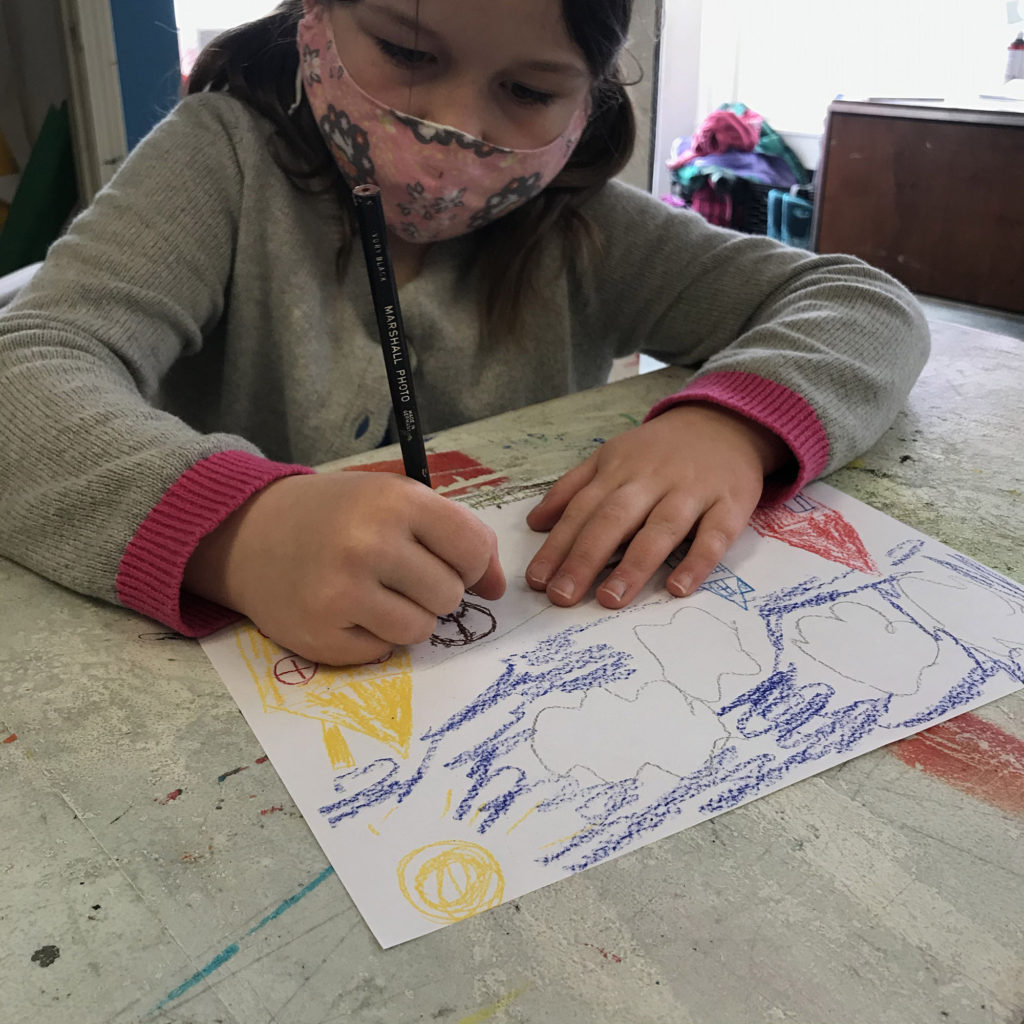
The pandemic has put unprecedented stress on our communities, our families, our coworkers, our neighbors. But as we move into the safety of the zoom cyber space, collaboration has become second nature. Organizations have the flexibility to not only cohost conversation across sectors, but even for connections to be built across state lines. The City of Burlington hosted this thought-provoking panel on Reparations and Reconciliation, inviting not just local city officials and scholars, but representatives from other cities experiencing their own Reparations and Reconciliation discussions and legislative actions.
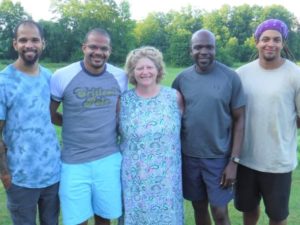
Following the themes advocates and leaders raised in this conversation, in this VT Digger article, Rohan and his brothers, Aaron and Justin Providence, share a vulnerable conversation about their experiences growing up Black in Vermont with a level of candidness new even to their own family.
“You have to take a step back and just listen,” Rohan tells VT Digger, echoing a sentiment not only shared in the city hosted panel on Reparation and Reconciliation, but an echo of Black voices since the beginning of the racial justice movement. With vulnerable honesty, this family shares their story to illustrate what must be done all across Vermont: frank conversations about race and racism in our communities.
That “raw truth” is core to this powerful commentary from Kesha Ram (D-Chittenden), Vermont’s first woman of color to serve in the state Senate. State Senator Ram points to the glaring racial disparities in COVID-19 rates, policing, and homeownership as the true causes of Vermont’s prevalent & persistent whiteness. Ram corrects the popular and comfortable opinion that Vermont’s lack of racial diversity can be solved merely through more rigorous recruitment, adding critical insight to an urgent equity issue in our state.
You can find the rest of Burlington’s recorded MLK Day events, including a story walk organized by Fletcher Free Library that you can still participate in on your own, here.
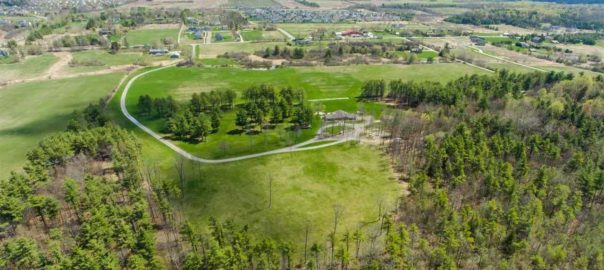
Housing Equity & Preservation of Open Space
updated, 12/29/20
At the Fair Housing Project, we generally applaud community members who organize to get their needs better met. But this featured article in the Other Paper as part of the Vermont Community News Network begs a counter response. Continue reading Housing Equity & Preservation of Open Space

